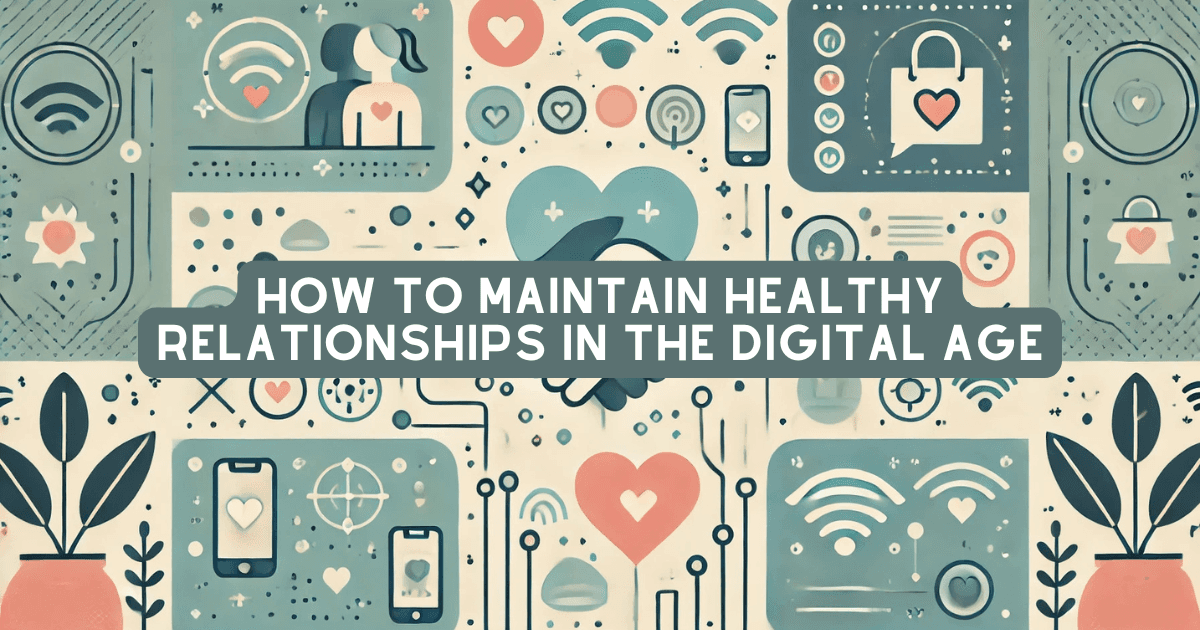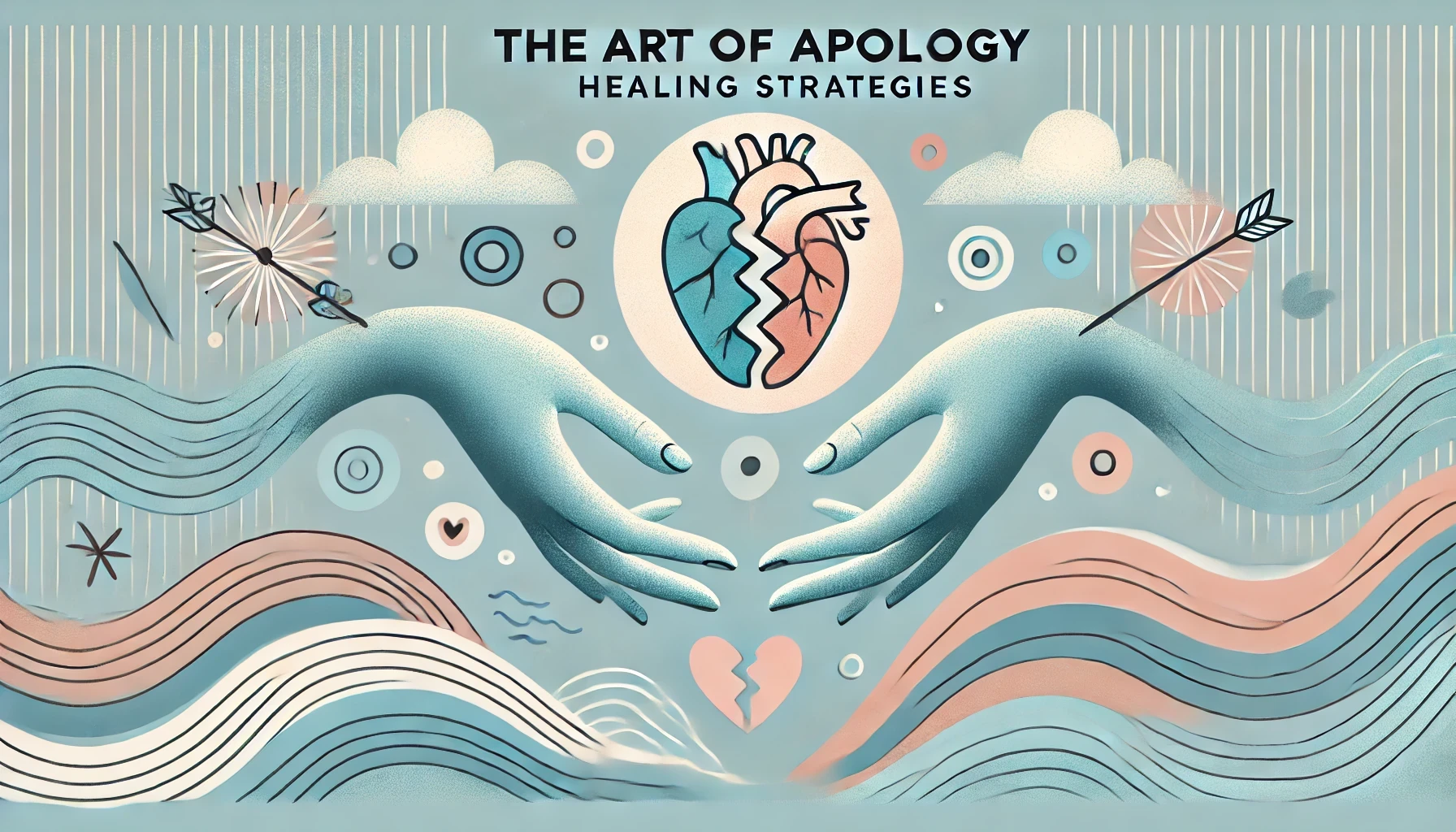The Ultimate Guide to Resolving Partner Conflicts Effectively
The Ultimate Guide to Resolving Partner Conflicts Effectively
13-Dec-2024
By
Sony Thomas



"Conflict is growth trying to happen." - Dr. Sue Johnson, Creator of Emotionally Focused Therapy.
Imagine this: You glimpse a late-night text on your partner's phone from a coworker. Your heart races, and jealousy and suspicion immediately flood your mind. How would you respond?
Typical Response:
You: "Who's texting you this late? Are you hiding something from me?" Partner: "Why are you spying on my phone? You're always so controlling!"
Effective Response: You: "I notice I am feeling insecure about the late text. Could we talk about our boundaries around work communication?" Partner: "I understand why that might worry you. Let me explain the project we are working on, and we can discuss what boundaries would make us both comfortable."
Reading this dialogue, you might think, "This sounds like a script from a movie – no one talks like that in real life!" And you're right – these exact words might not flow naturally in the heat of the moment. But the essence here isn't about memorizing perfect phrases; it's about the fundamental shift in approach and focus of communication. This shift is the first secret to effective conflict resolution.
Every relationship faces conflicts, but how we handle these disagreements determines whether they strengthen or weaken our bonds. Here's a surprising truth: according to The Gottman Institute, 69% of relationship conflicts are perpetual problems that will only partially be resolved. This isn't bad news – it simply means mastering conflict management skills is essential for long-term relationship success.
In this guide, we'll explore the nature of conflict, understand why it's not just inevitable but potentially beneficial, and share practical strategies you can implement today to transform your relationship conflicts into opportunities for deeper connection. Let's start by understanding the true nature of conflict.
Understanding the Nature of Conflict
Conflict in relationships isn't inherently harmful. Research shows that couples who engage in constructive conflict and maintain a 5:1 ratio of positive to negative interactions during disagreements are significantly more likely to stay together long-term. When handled constructively, disagreements can:
Leads to better mutual understanding.
Highlight areas needing attention.
Create growth opportunities.
Strengthen emotional intimacy
According to relationship researchers, these are the top 5 sources of conflict among couples:
Money (31% of couples): Differences in spending habits or financial priorities
Division of Labor (25% of couples): Unequal or irrelevant distribution of household responsibilities
Intimacy (21% of couples): Mismatched expectations around emotional and physical connections
Family Relations (15% of couples): Disagreements about boundaries with extended family or in-laws
Communication Styles (8% of couples): Differing approaches to discussing problems, expressing thoughts and emotions
Which of these areas do you find resonates most with your relationship experience?
Before diving into conflict resolution strategies, it's crucial to establish emotional safety as a foundation for constructive conversations.
Creating a Safe Space
"Safety is not the absence of threat—it's the presence of connection." - Dr. Stephen Porges.
Relationship studies have found that couples who establish clear ground rules for arguments are more likely to report relationship satisfaction; therefore, establishing a foundation of safety and trust is crucial before diving into conflict resolution techniques. So here are the ground rules for creating a safe bubble for resolution.
No name-calling or personal attacks
Avoiding absolute statements ("you always," "you never")
Taking breaks when emotions run high
Committing to honesty and respectfulness
Choose an appropriate time and place for discussions.
Ensure both partners feel physically comfortable.
Create emotional safety through consistent respect and validation.
Think of these guidelines as your relationship's seat belts – they might feel a bit restrictive sometimes, but they're worth it when things get bumpy! And just like you wouldn't start a road trip without buckling up, you shouldn't dive into conflict resolution without these safety measures.
Key Strategies for Effective Conflict Resolution
"The difference between a happy and unhappy relationship often comes down not to how compatible you are or how much conflict you have, but how you manage that conflict." - Dr. John Gottman.
1. Practice Active Listening
Active listening is more than just hearing words—it's about understanding what your partner means, feels, and thinks.
Focus entirely on understanding your partner.
Avoid planning your response while they're speaking.
Use verbal (“I see,” “That makes sense”) and non-verbal (eye contact, nodding) cues to show engagement.
Summarize what you’ve heard to ensure clarity: “So, you’re saying it feels frustrating when I don’t help with chores?”
Why It Matters: This builds trust and ensures your partner feels heard, laying the foundation for mutual understanding.
2. Use "I" Statements
In emotionally charged moments, it’s easy to fall into blame. Reframing with "I" statements shifts the focus to your feelings and invites dialogue instead of defensiveness.
Blaming: "You never help with housework!"
Reframed: "I feel overwhelmed and unappreciated when I handle the household tasks alone."
Why It Matters: This small change creates a safer space for discussion and encourages your partner to engage constructively.
3. Identify the Real Issue
Often, arguments are about more than they appear. What seems like a fight over chores may mask deeper emotions—like feeling unappreciated or unsupported.
Example: Dan and Rose argue over dirty dishes, but Dan feels his contributions are unnoticed beneath the surface.
Why It Matters: Understanding the underlying emotion allows partners to navigate conflicts with humor, affection, and goodwill rather than focusing solely on the surface issue.
4. Take Responsibility
Owning your role in a conflict builds accountability and paves the way for resolution.
Acknowledge your role in the conflict.
Stay focused on your actions and reactions, and avoid shifting the blame.
Avoid defensive responses (But I only did that because…)
Be willing to apologize sincerely.
Why It Matters: Accepting responsibility encourages your partner to do the same, creating a cooperative atmosphere.
5. Practice Emotional Regulation & Take A Pause
When emotions run high, logical thinking often shuts down. As Dr. Dan Siegel explains, “The pause allows our prefrontal cortex to come back online, enabling thoughtful responses instead of reactive behaviors.”
Notice when tension is rising and suggest a time-out.
Set a specific time to revisit the discussion.
Use calming techniques—like deep breathing or counting to ten—to reset emotionally.
Could you return with a solution focused on the current issue?
Why It Matters: Taking a break reduces the risk of saying things you regret, making room for thoughtful communication and problem-solving.
6. Know When to Seek Professional Help
The core of seeking help is not about fixing what's broken but strengthening what's already there. Counseling, therapy, or coaching can provide tools to strengthen emotional dynamics and create healthier interaction patterns. Signs it's time for professional help:
Conflicts remain unresolved despite best efforts.
The same issues keep recurring.
Communication breaks down completely.
Either partner feels unsafe or unheard.
Why It Matters: Tackling issues early prevents them from escalating. As the saying goes, "An ounce of prevention is worth a pound of cure.”
If you have noticed recurring challenges or feel stuck, you can contact a DareAhead coach. Early guidance can transform your relationship from surviving to thriving.
Creating Lasting Change
Love, joy, and fun in a relationship aren’t fixed states—they’re a continuous process. To sustain them, partners must become “experts” on each other. This involves understanding each other’s attachment styles, emotional triggers, and love languages. When couples learn to respond sensitively to these needs, they create "secure functioning," where both partners feel emotionally safe, connected, and supported. Here are strategies that go beyond conflict resolution to foster lasting change:
Small Things Often
This phrase comes from Dr. John Gottman, reflecting that relationships are built on small, positive moments of interaction rather than grand gestures. Regularly expressing appreciation, affection, or gratitude helps maintain emotional closeness. Gottman’s research shows that couples who engage in these small acts of kindness create an "emotional bank account" that provides resilience during challenging times.
Example: A quick text to say, "I’m thinking about you," or making coffee for your partner in the morning creates a connection over time.
Why It Matters: Small, meaningful moments reinforce that you value your partner, building trust and intimacy. These acts accumulate, creating emotional reserves that make it easier to weather challenges together.
Connection Before Correction
This principle reminds couples to prioritize emotional connection over criticism or blame. Dr. Tatkin emphasizes that attempts to correct or change a partner without establishing a connection can backfire, triggering defensiveness and conflict. Instead, couples should start with empathy and understanding before addressing behaviors that need to change.
For example, if your partner doesn't forget an important date, please acknowledge their effort or stress before addressing the missed commitment.
Why It Matters: Emotional connection creates a safe space where feedback feels collaborative rather than critical, encouraging your partner to be receptive rather than feeling defensive, attacked, or judged.
Move from Blame to Curiosity
Often, we fall prey to our internal need to point out the blame, but moving from blame to curiosity is a key step toward a more profound understanding. When we operate from blame, we make assumptions about our partner’s intentions, often rooted in past experiences. Conversely, curiosity opens the door to empathy by inviting exploration of the emotions and needs driving behaviors.
Example: Instead of saying, "You never listen to me," reframe it with curiosity: "What were you thinking when I brought that up?"
Why It Matters: Curiosity fosters emotional safety, encourages open dialogue, and promotes problem-solving. It enables both partners to approach the situation with a problem-solving mindset rather than a combative one.
Conclusion
"The greatest predictor of relationship success is not how well you get along, but how well you repair after conflict." - Dr. John Gottman.
Conflict resolution is a skill that evolves with consistent effort and practice. When handled thoughtfully, every conflict becomes an opportunity to deepen understanding and strengthen emotional connection. The goal isn’t to avoid disagreements altogether but to manage them in ways that foster growth and trust.
Here are simple actions you can take today:
Discuss this guide with your partner – Use it as a conversation starter to explore each other’s thoughts on conflict resolution.
Choose 2-3 strategies to implement immediately – Focus on manageable steps to build momentum.
Schedule regular check-ins – Set aside time to evaluate your progress and reflect on what’s working.
Commit to daily practice – Treat these skills like a muscle—consistent use will strengthen them over time.
By making intentional changes and focusing on connection, you can transform conflicts from stressful moments into meaningful opportunities to grow together.
Expert-Recommended Resources
"The Seven Principles for Making Marriage Work" - Dr. John Gottman
"Hold Me Tight" - Dr. Sue Johnson
"Wired for Love" - Dr. Stan Tatkin
"Getting the Love You Want" - Dr. Harville Hendrix
"Mating in Captivity" - Dr. Esther Perel
"Conflict is growth trying to happen." - Dr. Sue Johnson, Creator of Emotionally Focused Therapy.
Imagine this: You glimpse a late-night text on your partner's phone from a coworker. Your heart races, and jealousy and suspicion immediately flood your mind. How would you respond?
Typical Response:
You: "Who's texting you this late? Are you hiding something from me?" Partner: "Why are you spying on my phone? You're always so controlling!"
Effective Response: You: "I notice I am feeling insecure about the late text. Could we talk about our boundaries around work communication?" Partner: "I understand why that might worry you. Let me explain the project we are working on, and we can discuss what boundaries would make us both comfortable."
Reading this dialogue, you might think, "This sounds like a script from a movie – no one talks like that in real life!" And you're right – these exact words might not flow naturally in the heat of the moment. But the essence here isn't about memorizing perfect phrases; it's about the fundamental shift in approach and focus of communication. This shift is the first secret to effective conflict resolution.
Every relationship faces conflicts, but how we handle these disagreements determines whether they strengthen or weaken our bonds. Here's a surprising truth: according to The Gottman Institute, 69% of relationship conflicts are perpetual problems that will only partially be resolved. This isn't bad news – it simply means mastering conflict management skills is essential for long-term relationship success.
In this guide, we'll explore the nature of conflict, understand why it's not just inevitable but potentially beneficial, and share practical strategies you can implement today to transform your relationship conflicts into opportunities for deeper connection. Let's start by understanding the true nature of conflict.
Understanding the Nature of Conflict
Conflict in relationships isn't inherently harmful. Research shows that couples who engage in constructive conflict and maintain a 5:1 ratio of positive to negative interactions during disagreements are significantly more likely to stay together long-term. When handled constructively, disagreements can:
Leads to better mutual understanding.
Highlight areas needing attention.
Create growth opportunities.
Strengthen emotional intimacy
According to relationship researchers, these are the top 5 sources of conflict among couples:
Money (31% of couples): Differences in spending habits or financial priorities
Division of Labor (25% of couples): Unequal or irrelevant distribution of household responsibilities
Intimacy (21% of couples): Mismatched expectations around emotional and physical connections
Family Relations (15% of couples): Disagreements about boundaries with extended family or in-laws
Communication Styles (8% of couples): Differing approaches to discussing problems, expressing thoughts and emotions
Which of these areas do you find resonates most with your relationship experience?
Before diving into conflict resolution strategies, it's crucial to establish emotional safety as a foundation for constructive conversations.
Creating a Safe Space
"Safety is not the absence of threat—it's the presence of connection." - Dr. Stephen Porges.
Relationship studies have found that couples who establish clear ground rules for arguments are more likely to report relationship satisfaction; therefore, establishing a foundation of safety and trust is crucial before diving into conflict resolution techniques. So here are the ground rules for creating a safe bubble for resolution.
No name-calling or personal attacks
Avoiding absolute statements ("you always," "you never")
Taking breaks when emotions run high
Committing to honesty and respectfulness
Choose an appropriate time and place for discussions.
Ensure both partners feel physically comfortable.
Create emotional safety through consistent respect and validation.
Think of these guidelines as your relationship's seat belts – they might feel a bit restrictive sometimes, but they're worth it when things get bumpy! And just like you wouldn't start a road trip without buckling up, you shouldn't dive into conflict resolution without these safety measures.
Key Strategies for Effective Conflict Resolution
"The difference between a happy and unhappy relationship often comes down not to how compatible you are or how much conflict you have, but how you manage that conflict." - Dr. John Gottman.
1. Practice Active Listening
Active listening is more than just hearing words—it's about understanding what your partner means, feels, and thinks.
Focus entirely on understanding your partner.
Avoid planning your response while they're speaking.
Use verbal (“I see,” “That makes sense”) and non-verbal (eye contact, nodding) cues to show engagement.
Summarize what you’ve heard to ensure clarity: “So, you’re saying it feels frustrating when I don’t help with chores?”
Why It Matters: This builds trust and ensures your partner feels heard, laying the foundation for mutual understanding.
2. Use "I" Statements
In emotionally charged moments, it’s easy to fall into blame. Reframing with "I" statements shifts the focus to your feelings and invites dialogue instead of defensiveness.
Blaming: "You never help with housework!"
Reframed: "I feel overwhelmed and unappreciated when I handle the household tasks alone."
Why It Matters: This small change creates a safer space for discussion and encourages your partner to engage constructively.
3. Identify the Real Issue
Often, arguments are about more than they appear. What seems like a fight over chores may mask deeper emotions—like feeling unappreciated or unsupported.
Example: Dan and Rose argue over dirty dishes, but Dan feels his contributions are unnoticed beneath the surface.
Why It Matters: Understanding the underlying emotion allows partners to navigate conflicts with humor, affection, and goodwill rather than focusing solely on the surface issue.
4. Take Responsibility
Owning your role in a conflict builds accountability and paves the way for resolution.
Acknowledge your role in the conflict.
Stay focused on your actions and reactions, and avoid shifting the blame.
Avoid defensive responses (But I only did that because…)
Be willing to apologize sincerely.
Why It Matters: Accepting responsibility encourages your partner to do the same, creating a cooperative atmosphere.
5. Practice Emotional Regulation & Take A Pause
When emotions run high, logical thinking often shuts down. As Dr. Dan Siegel explains, “The pause allows our prefrontal cortex to come back online, enabling thoughtful responses instead of reactive behaviors.”
Notice when tension is rising and suggest a time-out.
Set a specific time to revisit the discussion.
Use calming techniques—like deep breathing or counting to ten—to reset emotionally.
Could you return with a solution focused on the current issue?
Why It Matters: Taking a break reduces the risk of saying things you regret, making room for thoughtful communication and problem-solving.
6. Know When to Seek Professional Help
The core of seeking help is not about fixing what's broken but strengthening what's already there. Counseling, therapy, or coaching can provide tools to strengthen emotional dynamics and create healthier interaction patterns. Signs it's time for professional help:
Conflicts remain unresolved despite best efforts.
The same issues keep recurring.
Communication breaks down completely.
Either partner feels unsafe or unheard.
Why It Matters: Tackling issues early prevents them from escalating. As the saying goes, "An ounce of prevention is worth a pound of cure.”
If you have noticed recurring challenges or feel stuck, you can contact a DareAhead coach. Early guidance can transform your relationship from surviving to thriving.
Creating Lasting Change
Love, joy, and fun in a relationship aren’t fixed states—they’re a continuous process. To sustain them, partners must become “experts” on each other. This involves understanding each other’s attachment styles, emotional triggers, and love languages. When couples learn to respond sensitively to these needs, they create "secure functioning," where both partners feel emotionally safe, connected, and supported. Here are strategies that go beyond conflict resolution to foster lasting change:
Small Things Often
This phrase comes from Dr. John Gottman, reflecting that relationships are built on small, positive moments of interaction rather than grand gestures. Regularly expressing appreciation, affection, or gratitude helps maintain emotional closeness. Gottman’s research shows that couples who engage in these small acts of kindness create an "emotional bank account" that provides resilience during challenging times.
Example: A quick text to say, "I’m thinking about you," or making coffee for your partner in the morning creates a connection over time.
Why It Matters: Small, meaningful moments reinforce that you value your partner, building trust and intimacy. These acts accumulate, creating emotional reserves that make it easier to weather challenges together.
Connection Before Correction
This principle reminds couples to prioritize emotional connection over criticism or blame. Dr. Tatkin emphasizes that attempts to correct or change a partner without establishing a connection can backfire, triggering defensiveness and conflict. Instead, couples should start with empathy and understanding before addressing behaviors that need to change.
For example, if your partner doesn't forget an important date, please acknowledge their effort or stress before addressing the missed commitment.
Why It Matters: Emotional connection creates a safe space where feedback feels collaborative rather than critical, encouraging your partner to be receptive rather than feeling defensive, attacked, or judged.
Move from Blame to Curiosity
Often, we fall prey to our internal need to point out the blame, but moving from blame to curiosity is a key step toward a more profound understanding. When we operate from blame, we make assumptions about our partner’s intentions, often rooted in past experiences. Conversely, curiosity opens the door to empathy by inviting exploration of the emotions and needs driving behaviors.
Example: Instead of saying, "You never listen to me," reframe it with curiosity: "What were you thinking when I brought that up?"
Why It Matters: Curiosity fosters emotional safety, encourages open dialogue, and promotes problem-solving. It enables both partners to approach the situation with a problem-solving mindset rather than a combative one.
Conclusion
"The greatest predictor of relationship success is not how well you get along, but how well you repair after conflict." - Dr. John Gottman.
Conflict resolution is a skill that evolves with consistent effort and practice. When handled thoughtfully, every conflict becomes an opportunity to deepen understanding and strengthen emotional connection. The goal isn’t to avoid disagreements altogether but to manage them in ways that foster growth and trust.
Here are simple actions you can take today:
Discuss this guide with your partner – Use it as a conversation starter to explore each other’s thoughts on conflict resolution.
Choose 2-3 strategies to implement immediately – Focus on manageable steps to build momentum.
Schedule regular check-ins – Set aside time to evaluate your progress and reflect on what’s working.
Commit to daily practice – Treat these skills like a muscle—consistent use will strengthen them over time.
By making intentional changes and focusing on connection, you can transform conflicts from stressful moments into meaningful opportunities to grow together.
Expert-Recommended Resources
"The Seven Principles for Making Marriage Work" - Dr. John Gottman
"Hold Me Tight" - Dr. Sue Johnson
"Wired for Love" - Dr. Stan Tatkin
"Getting the Love You Want" - Dr. Harville Hendrix
"Mating in Captivity" - Dr. Esther Perel

Sony Thomas
Holistic Coach


